August 05, 2024 | 23:31 (GMT+7)
Ngo dong trees on Cu Lao Cham island
The vibrant red of the Ngo dong (Firmiana simplex) in full bloom at Cu Lao Cham blends harmoniously with the lush green of the mountains and the deep blue of the sea, creating a stunning attraction for visitors.
    |
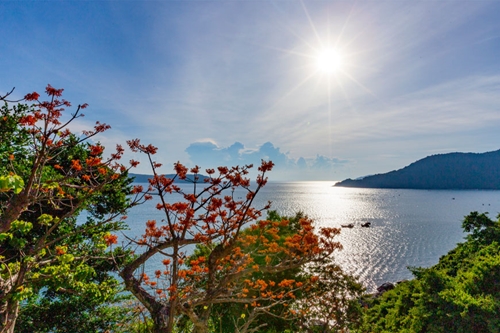 |
|
The end of July sees Ngo dong flowers blooming brilliantly across the forests of Cu Lao Cham, an island located about 18km from Hoi An ancient town, Quang Nam province. This area, recognized by UNESCO as a World Biosphere Reserve, is beloved for its unspoiled beauty and diverse ecosystems, including over 950 aquatic species. |
    |
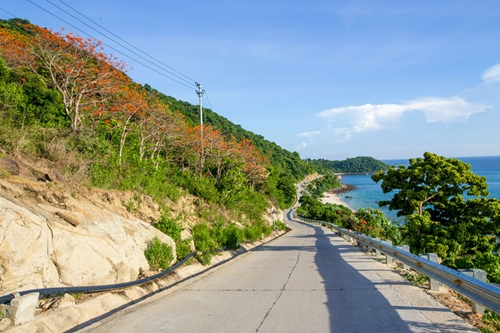 |
|
On Hon Lao, the largest island in the Cu Lao Cham island, coastal roads are adorned with dense clusters of Ngo dong trees. Photographer Le Huy Tuan from Da Nang captures the vibrant scenes around Bai Lang, Bai Xep, Bai Bim, and Bai Huong, aiming to share the island's seasonal beauty with a broader audience. |
    |
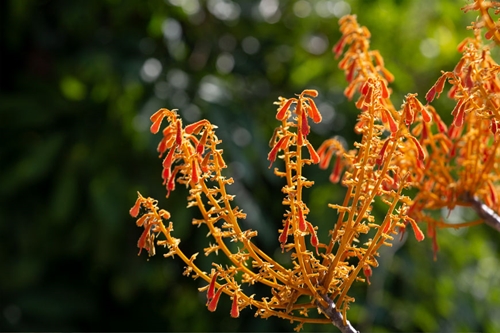 |
|
Ngo dong trees thrive in the dry, rocky terrain of the island, growing to the height of 5-10 meters despite the thin soil. The red flowers of these trees stand out vividly. |
    |
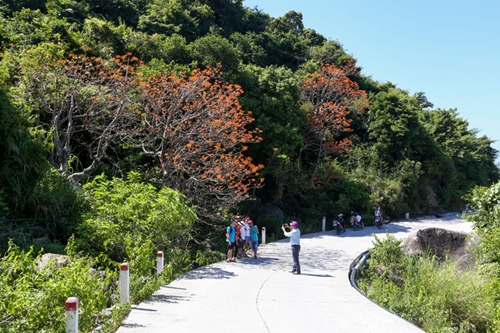 |
|
With the flowers in full bloom, the island becomes a popular spot for tourists to take photographs and enjoy the natural scenery. The flowers bloom for about a month from late July, and when autumn comes, new leaves sprout and the trees bear fruit, spreading seeds that germinate into new trees afterwards. |
    |
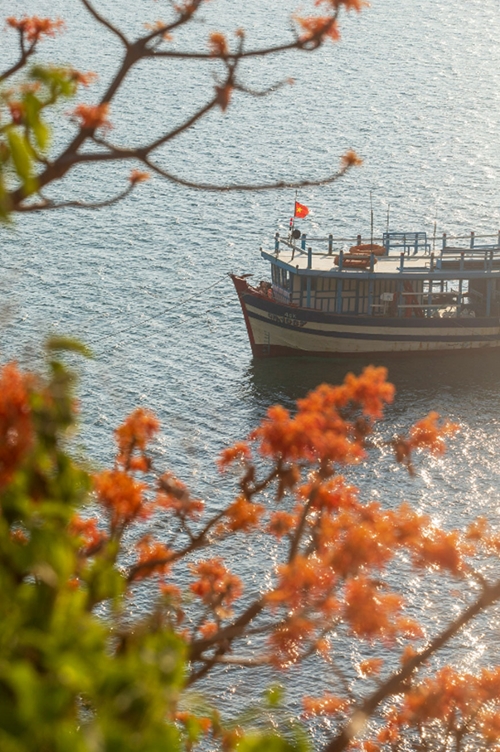 |
|
Bai Xep, known for its pristine beauty, attracts many tourists for beach activities. The place also features ancient Ngo dong trees that extend towards the sea. |
    |
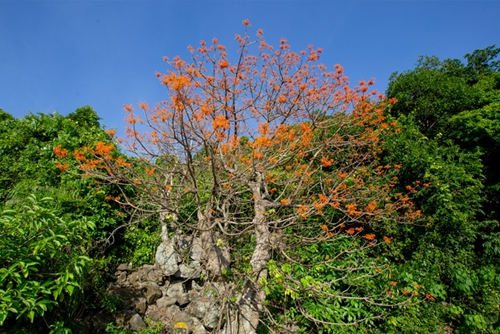 |
|
Ngo dong trees are integral to the island's history and culture. At Doc Suoi Tinh, Bai Lang Village, three ancient Ngo dong trees, aged between 155 and 250 years, were recognized as Vietnamese Heritage Trees in April 2015. The tree's parts are used to make traditional crafts like hammocks and products, such as oil, sunscreen, and food. |
    |
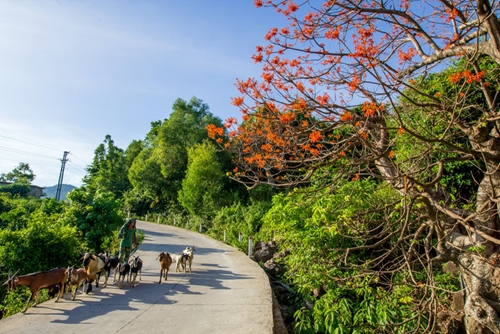 |
|
The ideal time to visit Cu Lao Cham is from March to August, with calm seas and clear skies. The remaining months are often stormy, with rough seas that usually halt tourist boats. |
Translated by Trung Thanh